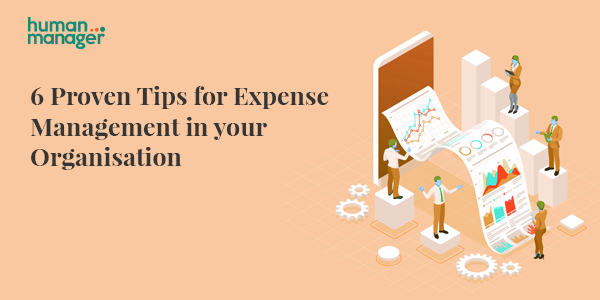Manual expense management is often a complex process in business, with loads of paperwork and spreadsheets that only result in lots of data entry, large investment of time, and careful maintenance of records — with no guarantee that the process will be error-free, no matter how meticulous it gets.
In order to stem these challenges, some organisations have come up with expense policies to streamline types of expenditure, their rates and/or even limits to which they can be incurred. They also have a process of getting funds in advance or reimbursed. But monitoring and enforcements of such policies remains a challenge.
A little purchase here and a staff travel and logistics cost there can quickly pile up your running cost. If you do not manage your spending and keep it at the barest minimum, it could result in a sizeable bill that you are not prepared for.
This is why as a manager, an admin or HR professional in any organisation, these proven tips will help to improve your expense management. Take a dive!
1. Do a Comprehensive Analysis
Carry out a thorough review of your organisation’s expense policy to define what types of expense will be reimbursed, how expenses should be submitted and how they will be reimbursed. Also, make sure to clearly inform and educate your employees to ensure that they act accordingly. But if you do not have an expense policy, create one today!
2. Have a Budget
Budgets help to set expense and revenue goals. When you know how much you can spend, you can more easily manage your spending. If your revenue is lower than budgeted, find ways to cut expenses and increase income. You can also establish metrics that are meaningful to your business and at par with standard companies in your industry.
3. Get Tough on Fixed Costs
Don’t be complacent about fixed costs because they are generally recurrent and often reflect long-standing relationships with suppliers. You should periodically review market costs to see if you can get better deals from competing suppliers.
4. Reimburse your Employees Promptly
Delayed reimbursements is a common problem. Ensure your staff turn in their requests in time and you act on it within the agreed time. This cultivates employee commitment and satisfaction. Also, let your employee know why an expense is not approved.
5. Cultivate Financial Discipline as a core Company Value
Financial literacy should be extended to your staff through decision-making and team-building, so they are better able to control their own costs. Also, you should actively involve your employees in the cost management process, and seek cost effective ways of operation.
6. Implement an Expense Management Solution
Having a software to ensure an automated reimbursement process gives you and other members of staff ample time to focus on other tasks, and remain motivated to perform better. Such solution will facilitate the submission or reporting of expenses by employees from any location for review and approval by managers from anywhere and at any time.
HumanManager can help your organisation manage its expenses, approval workflow, and required controls, as well as provide adequate reports and generate accounting journals based on your requirement.
HumanManager offers your employees the flexibility and ease to submit their receipts and get their managers’ approvals in real time. It is tested and trusted by hundreds of organisations to effectively manage their Claims and other HR needs including employee information, payroll, performance and leave.
Remember, that lovely quote by Benjamin Franklin: “a penny saved is a penny earned.”
Visit www.humanmanager.net today to get started.

